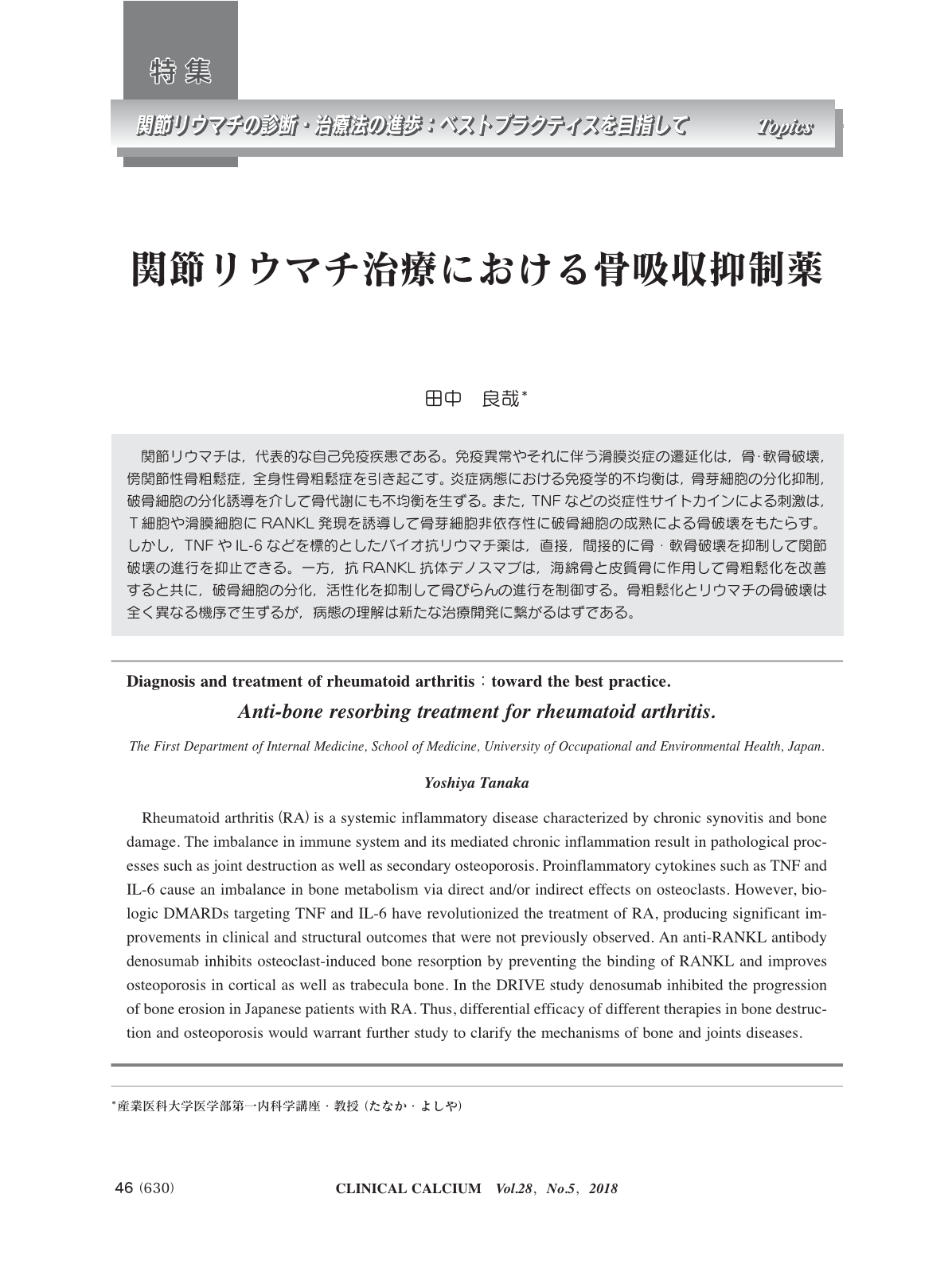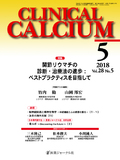Japanese
English
- 有料閲覧
- Abstract 文献概要
- 1ページ目 Look Inside
- 参考文献 Reference
関節リウマチは,代表的な自己免疫疾患である。免疫異常やそれに伴う滑膜炎症の遷延化は,骨・軟骨破壊,傍関節性骨粗鬆症,全身性骨粗鬆症を引き起こす。炎症病態における免疫学的不均衡は,骨芽細胞の分化抑制,破骨細胞の分化誘導を介して骨代謝にも不均衡を生ずる。また,TNFなどの炎症性サイトカインによる刺激は,T細胞や滑膜細胞にRANKL発現を誘導して骨芽細胞非依存性に破骨細胞の成熟による骨破壊をもたらす。しかし,TNFやIL-6などを標的としたバイオ抗リウマチ薬は,直接,間接的に骨・軟骨破壊を抑制して関節破壊の進行を抑止できる。一方,抗RANKL抗体デノスマブは,海綿骨と皮質骨に作用して骨粗鬆化を改善すると共に,破骨細胞の分化,活性化を抑制して骨びらんの進行を制御する。骨粗鬆化とリウマチの骨破壊は全く異なる機序で生ずるが,病態の理解は新たな治療開発に繋がるはずである。
Rheumatoid arthritis(RA)is a systemic inflammatory disease characterized by chronic synovitis and bone damage. The imbalance in immune system and its mediated chronic inflammation result in pathological processes such as joint destruction as well as secondary osteoporosis. Proinflammatory cytokines such as TNF and IL-6 cause an imbalance in bone metabolism via direct and/or indirect effects on osteoclasts. However, biologic DMARDs targeting TNF and IL-6 have revolutionized the treatment of RA, producing significant improvements in clinical and structural outcomes that were not previously observed. An anti-RANKL antibody denosumab inhibits osteoclast-induced bone resorption by preventing the binding of RANKL and improves osteoporosis in cortical as well as trabecula bone. In the DRIVE study denosumab inhibited the progression of bone erosion in Japanese patients with RA. Thus, differential efficacy of different therapies in bone destruction and osteoporosis would warrant further study to clarify the mechanisms of bone and joints diseases.



